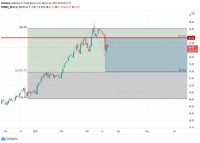|
Opalesque Industry Update - The Eurekahedge Hedge Fund Index declined -1.05% in January 2022, outperforming the global equity market as represented by the MSCI ACWI (Local) which declined -4.91% over the same period. Global equities tanked as rising bond yields and the escalating tensions between the United States and Russia over Ukraine led to heightened risk aversion among market participants. The Federal Open Market Committee (FOMC) has suggested that it is very likely to hike rates in March just as quantitative easing ends, underpinned by high inflation and a strong labour market. The US consumer price index has surged to 7.5% in January, the highest level since February 1982, putting pressure on the Federal Reserve to hike rates sooner rather than later. The yield on the 10-year Treasury note hit 1.78% for the first time since December 2019 on the prospect of tighter monetary policy, negatively impacting the global equity market. The NASDAQ Composite and the S&P 500 posted sharp declines of -8.98% and -5.26% in January respectively, their worst monthly performance since March 2020. Over in Europe, returns were negative among equity benchmarks in the region with the Euro Stoxx 50 and DAX down -2.88% and -2.60% respectively. In contrast to the Federal Reserve, the European Central Bank maintains the view that inflation is still transitory in nature and has no plans to raise rates until the 2% inflation target is reached. Returns were negative across geographic mandates in January, with Latin American hedge funds the only exception reporting a positive return of 1.98% while the European and North American mandates trailed behind with returns of -1.47% and -1.51% respectively. Across strategies, the CTA/managed futures and distressed debt mandates performed the best with returns of 1.06% and 0.67% respectively while the event driven and long/short equities mandates lagged their peers with returns of -1.82% and -2.17% respectively. Hedge fund managers started the year in the red with losses of -1.05%, outperforming the underlying equity market as represented by the MSCI ACWI (Local) which returned -4.91% over the month. In terms of their 2021 performance, global hedge funds have returned 9.35%, recording their second-best performance since 2010. On an asset-weighted basis, hedge funds were down -0.64% in January, as captured by the Eurekahedge Asset Weighted Index - USD. The ability of larger hedge funds to allocate their AUM flexibly to manage volatility enabled them to outperform against their smaller peers during the month. Billion-dollar hedge funds as represented by the Eurekahedge Billion Dollar Hedge Fund Index were down -0.38% while medium hedge funds as represented by the Eurekahedge Medium Hedge Fund Index posted relatively larger losses of -1.56%. Eurekahedge North American Hedge Fund Index down -1.51% in January The Eurekahedge North American Hedge Fund Index was down -1.51% in January, outperforming the three main US indexes with the NASDAQ, S&P 500 and DJIA posting -8.98%, -5.26% and -3.32% of losses during the month respectively. The extremely high inflation rate in the region, which stood at above 7.0% on a year-to-year basis has resulted in a more hawkish Federal Reserve which is expected to raise interest rates four times in 2022. Pan-Asia hedge funds also suffered losses in January with the Eurekahedge Asia ex-Japan Hedge Fund Index and the Eurekahedge Japan Hedge Fund Index posting -2.75% and -3.06% of losses respectively. Market concerns surrounding the more hawkish stance of the Federal Reserve have precipitated in Asia which resulted in a weaker equity market in the region, as seen in the -4.21% decline of the MSCI AC Asia Pacific Index in January. The Eurekahedge CTA/Managed Futures Hedge Fund Index was up 1.06% in January, outperforming their strategic peers during the month. Higher oil prices as seen by the 17.41% and 15.33% increase of the Brent Crude oil and West Texas Intermediate Crude Oil throughout the month has contributed to the performance of CTA/managed futures fund managers. The ongoing tension between Russia and Ukraine has contributed to the strong performance of energy prices. The CBOE Eurekahedge Long Volatility Hedge Fund Index was up 1.36%, supported by the increase in volatility in the market, with the CBOE VIX reaching 24.83 at the end of January. Among its volatility index peers, only long volatility hedge funds generated a positive return as their relative value and tail risk peers were down by -2.89% and -7.66% respectively. Fund managers focusing on cryptocurrencies declined -21.04% in January - recording their deepest losses since November 2018, as tracked by the Eurekahedge Crypto-Currency Hedge Fund Index. Bitcoin prices went down to $37,000 from its all-time high of $68,000 recorded in November 2021. In January, the leading cryptocurrency Bitcoin slipped -19.52%, while the second leading cryptocurrency as represented by Ethereum was down -29.81%.
|
Industry Updates
Hedge funds posts worst January return since 2016 as markets priced in faster pace of monetary policy tightening by the Federal Reserve
Friday, February 11, 2022
|
|





 RSS
RSS








